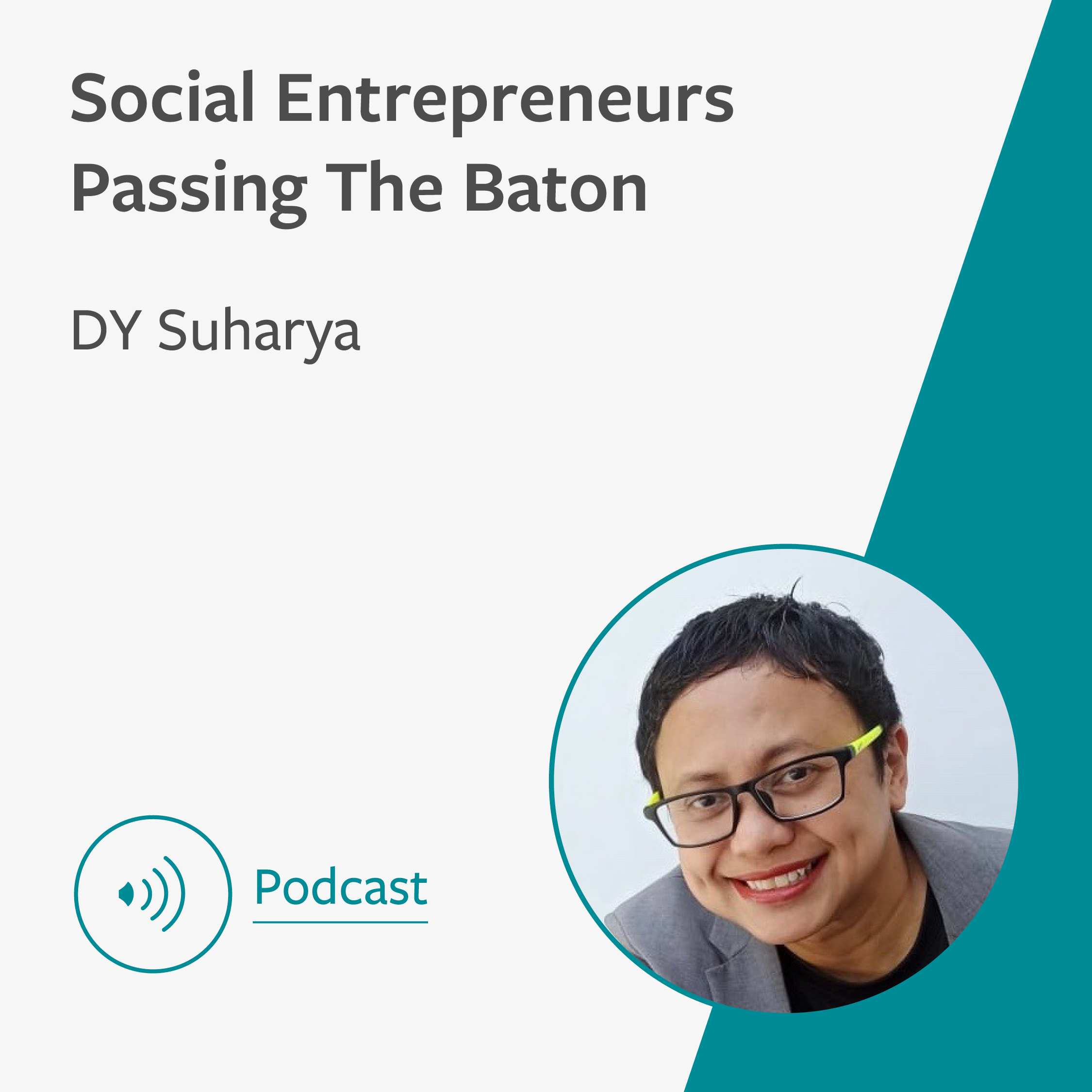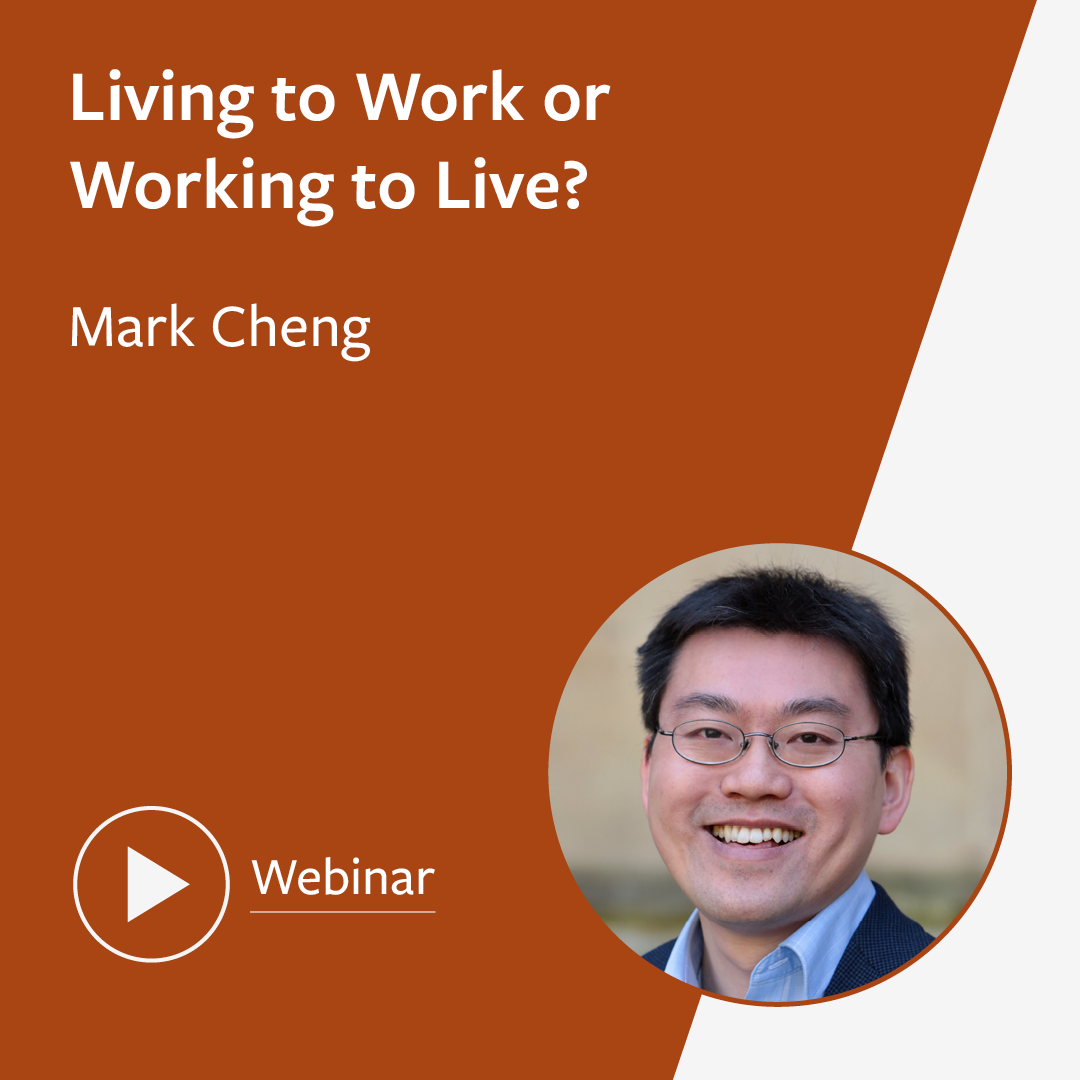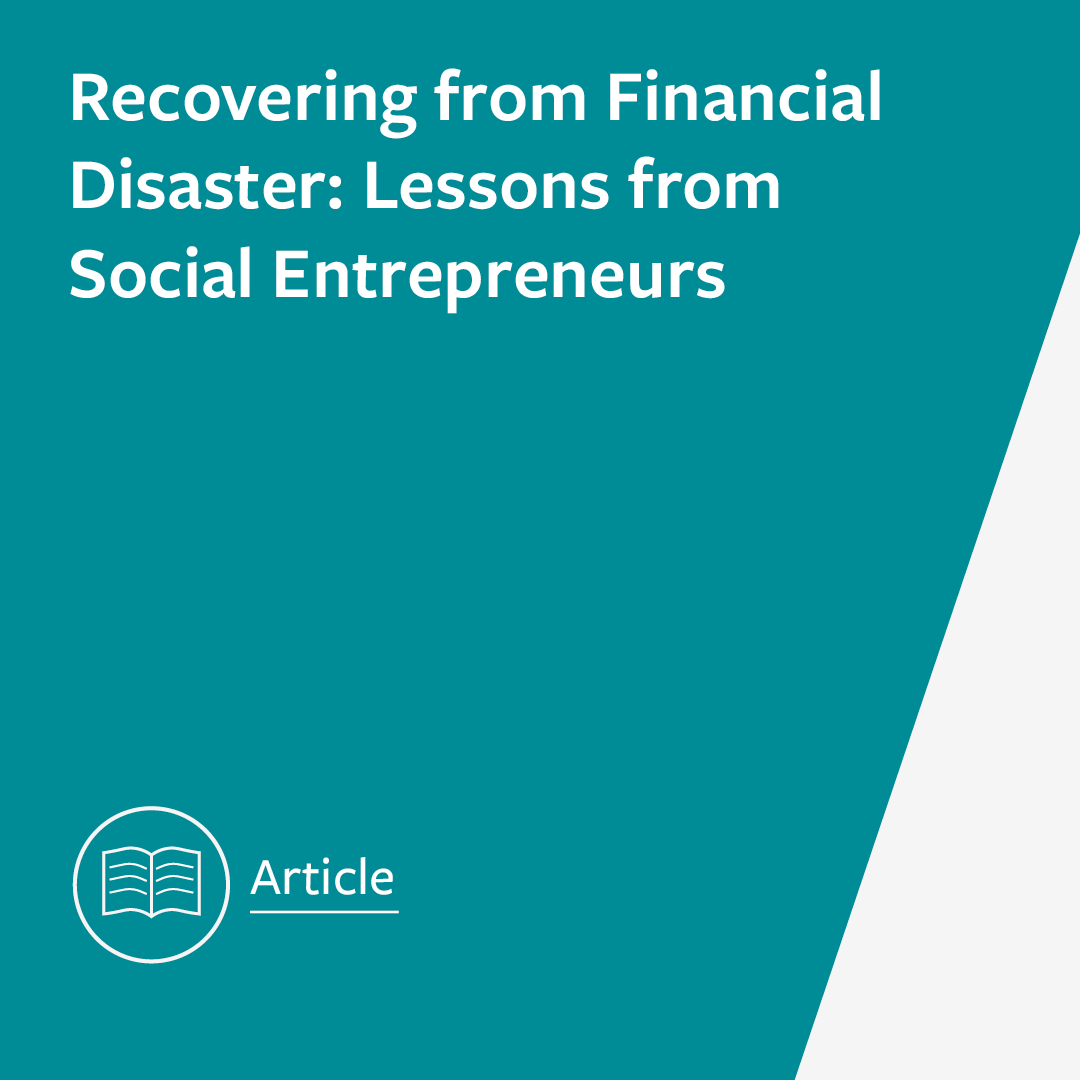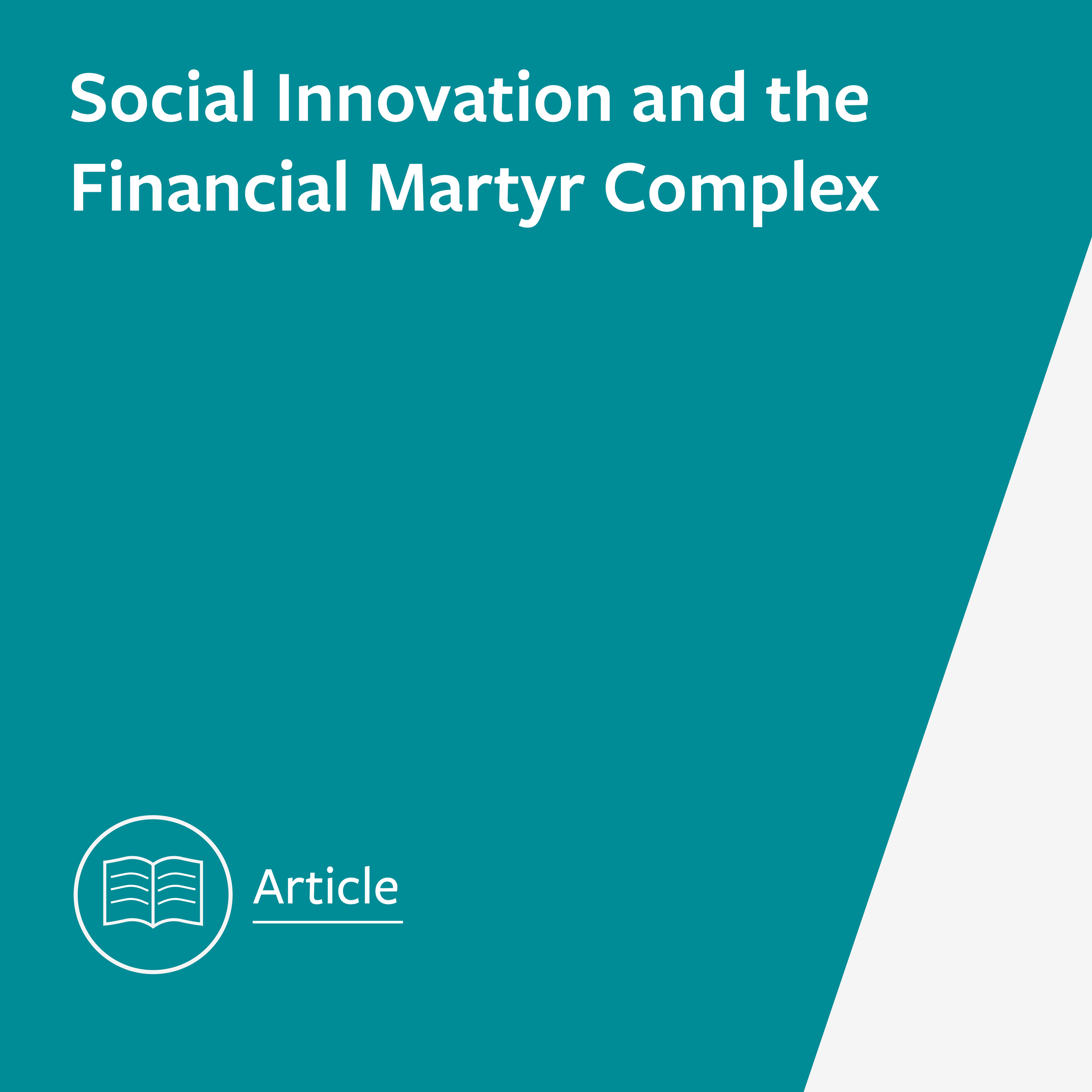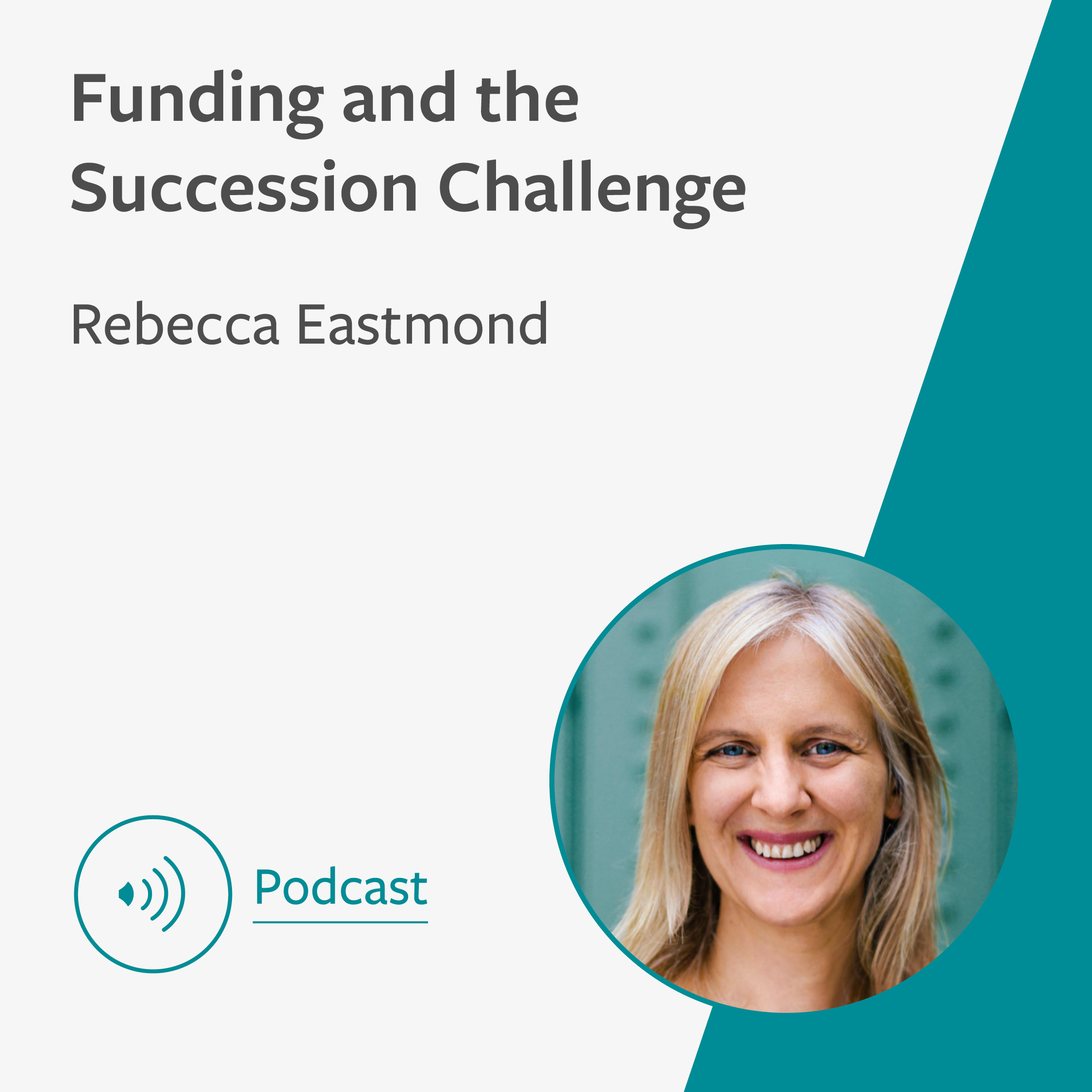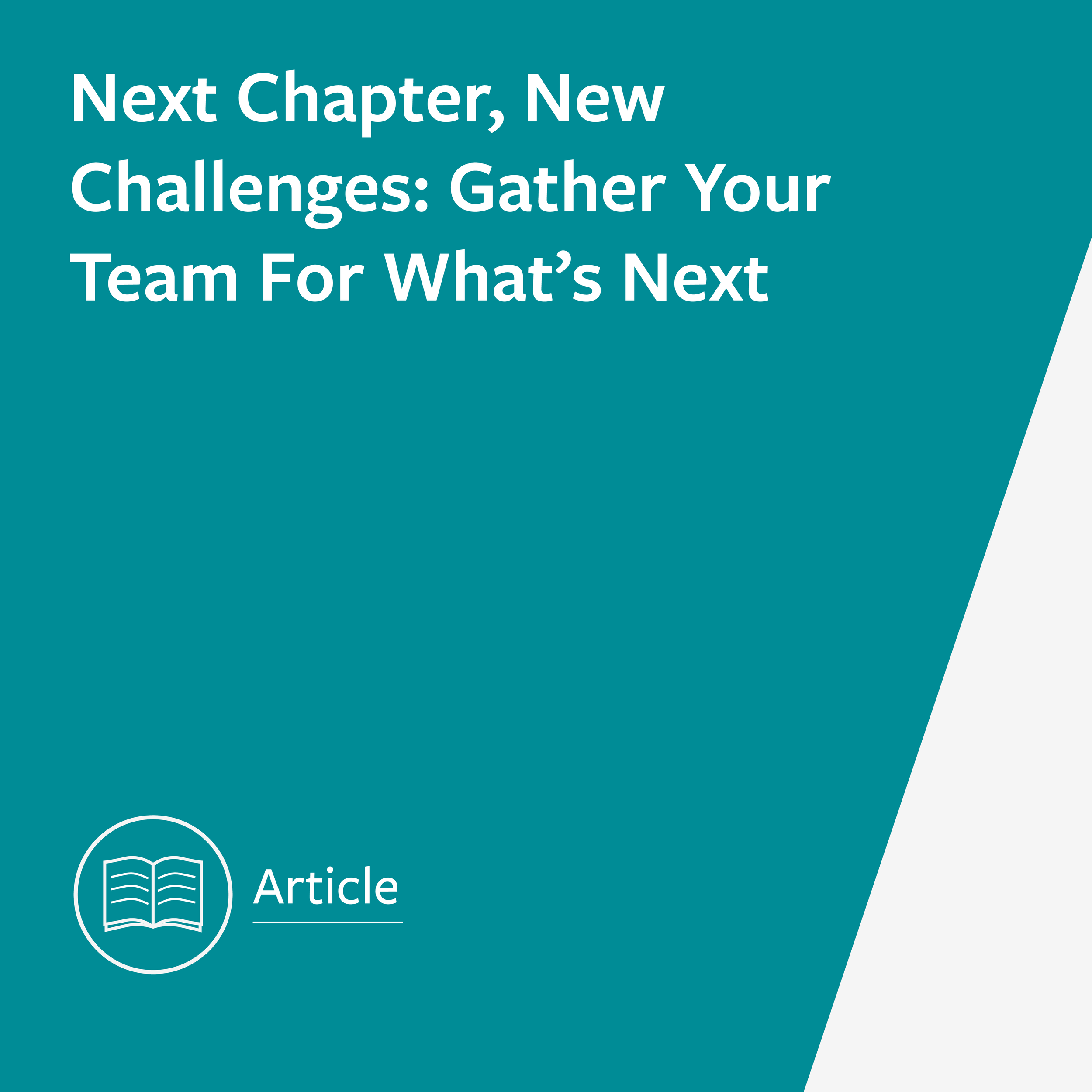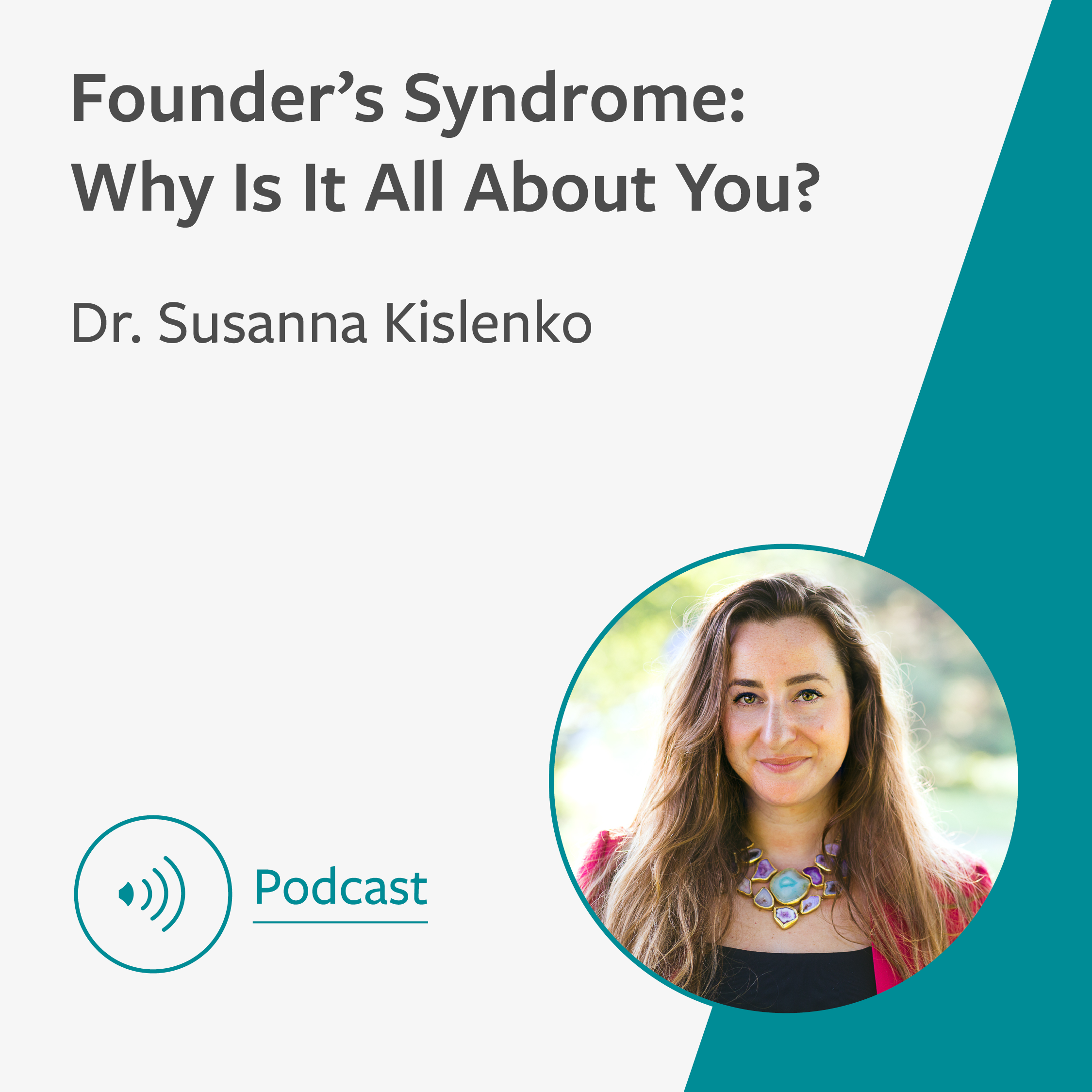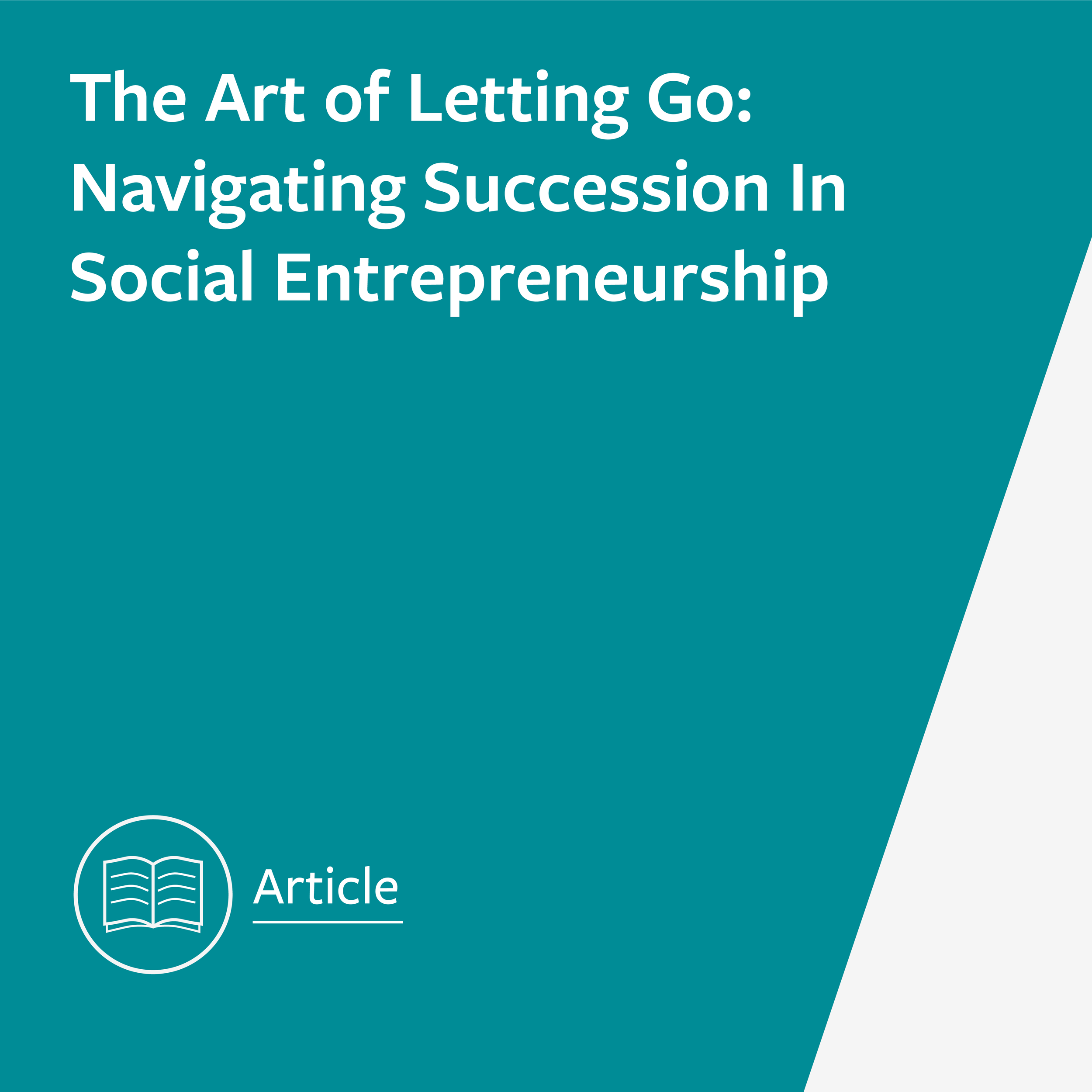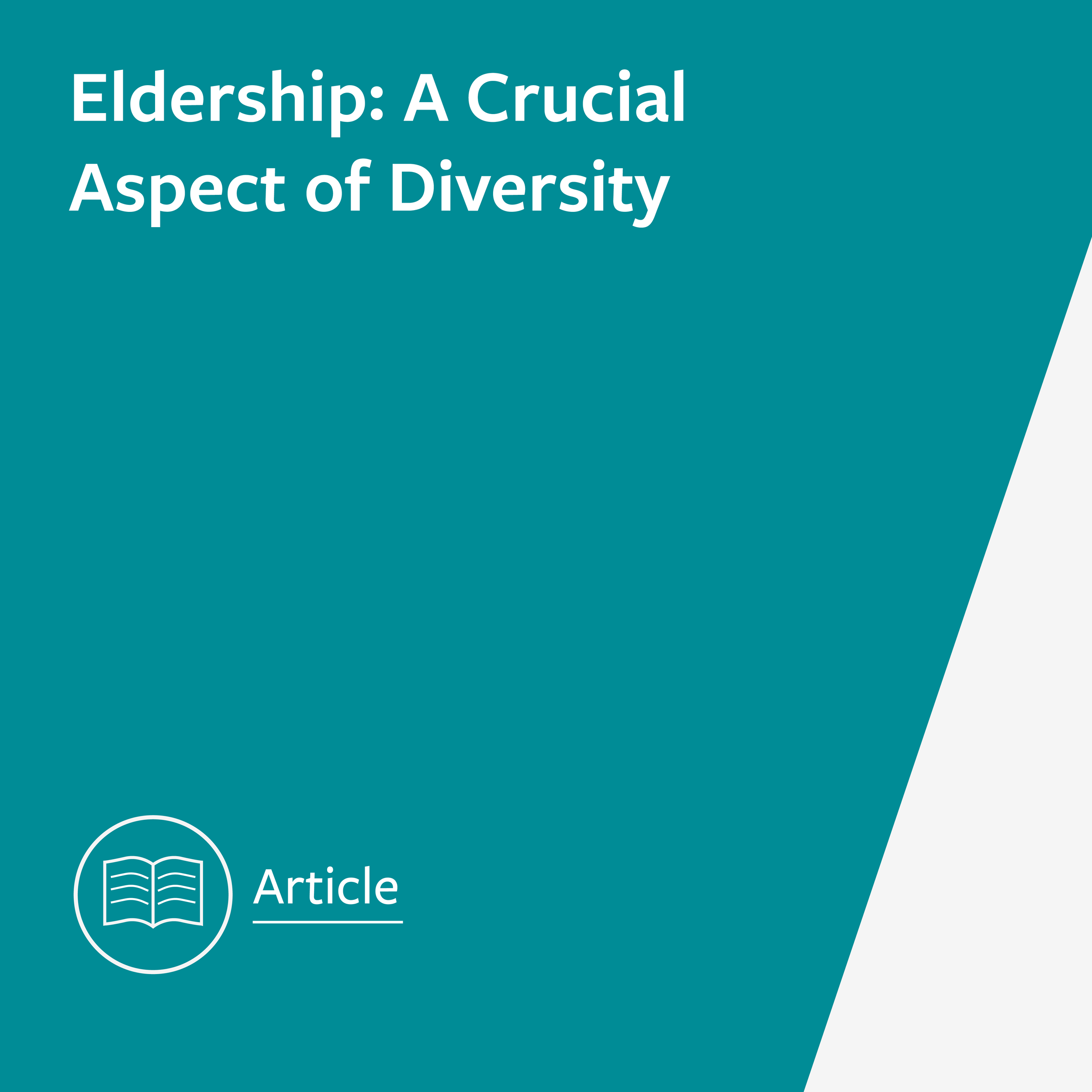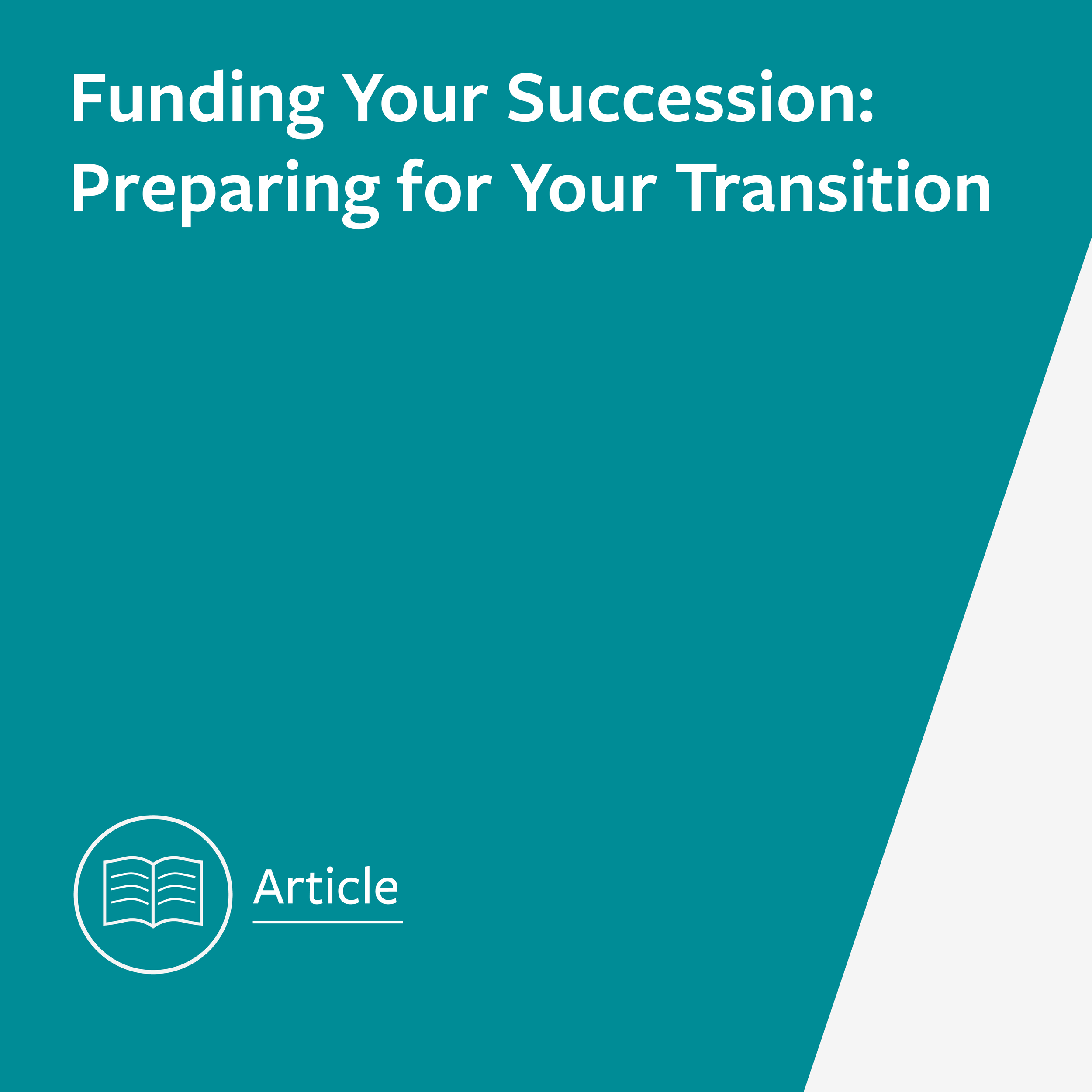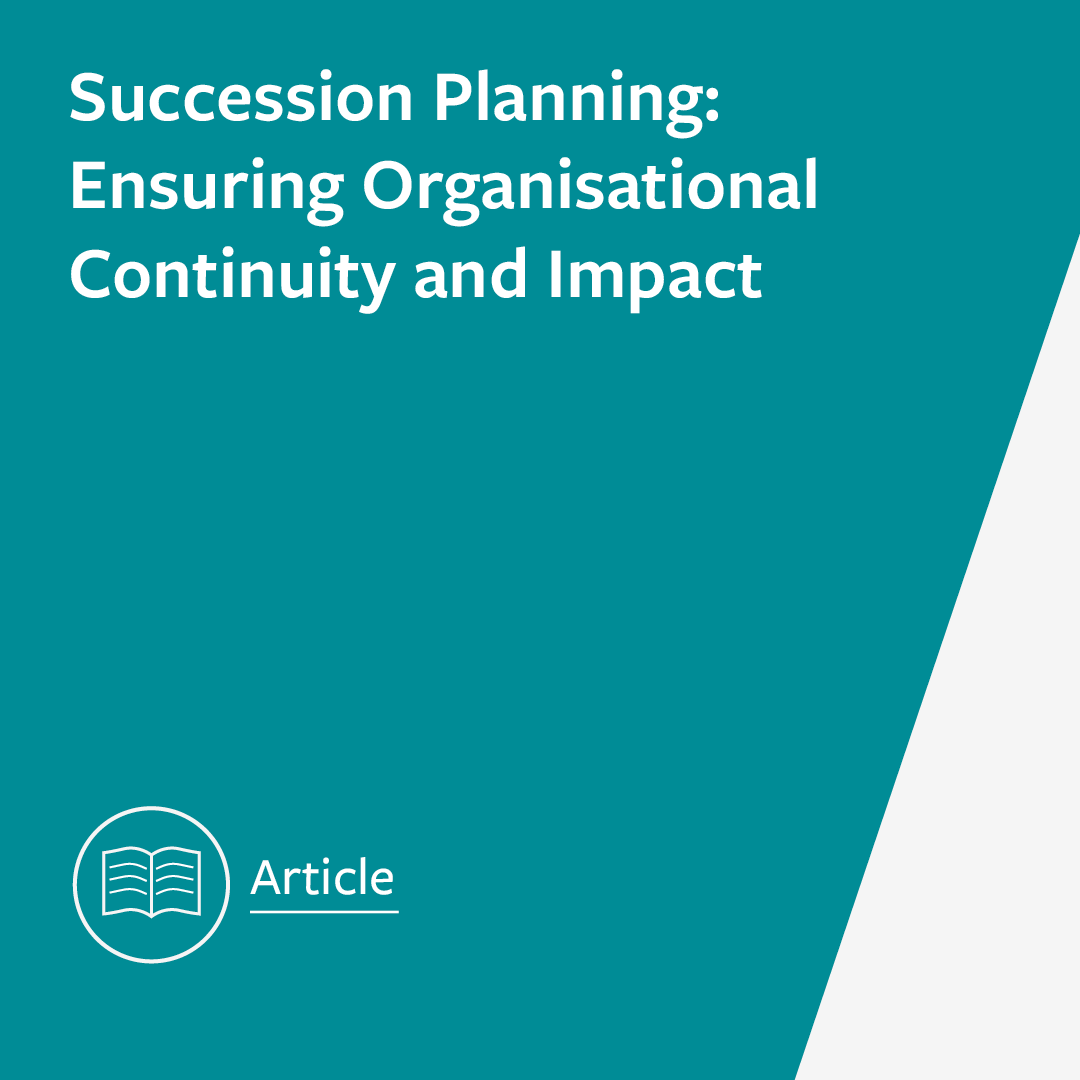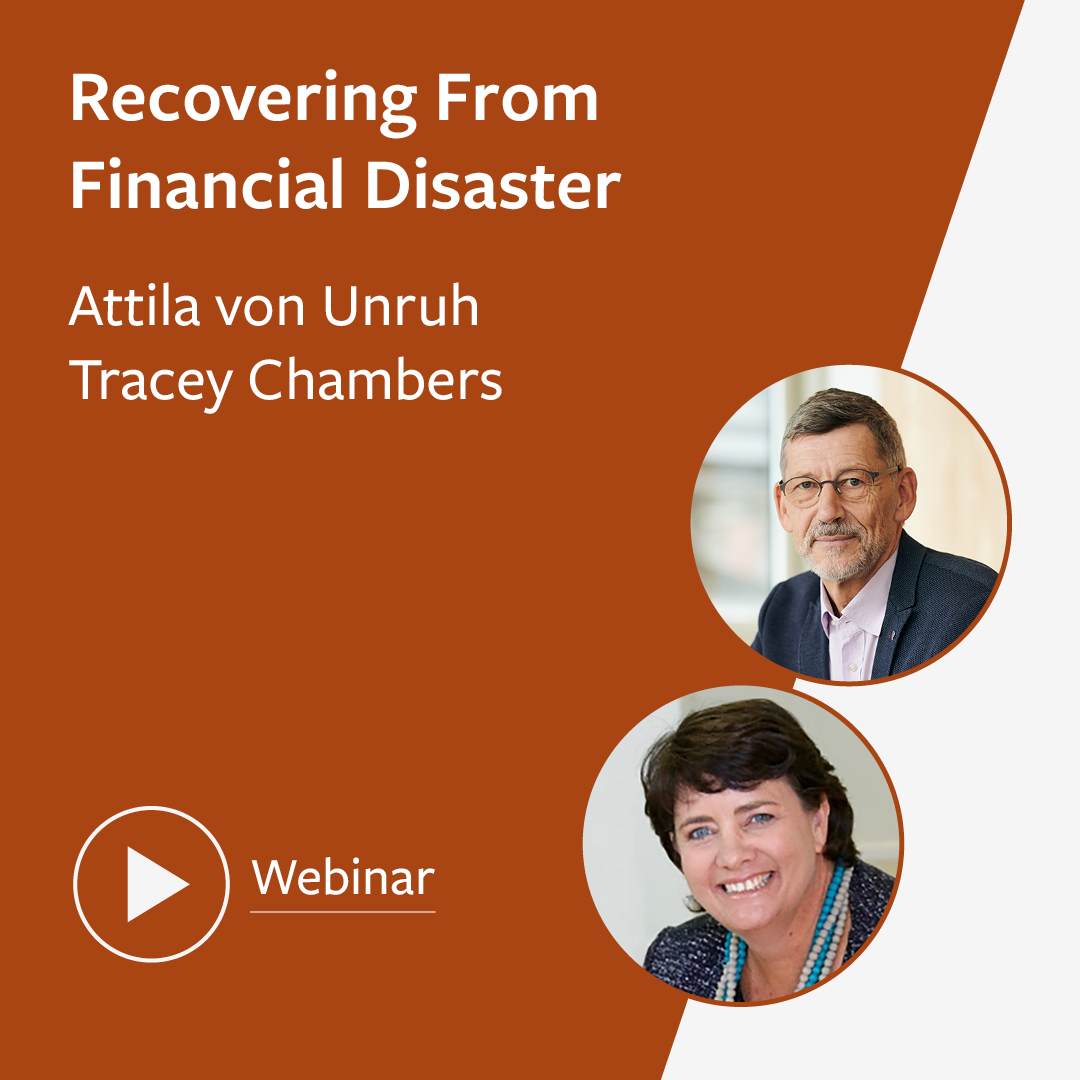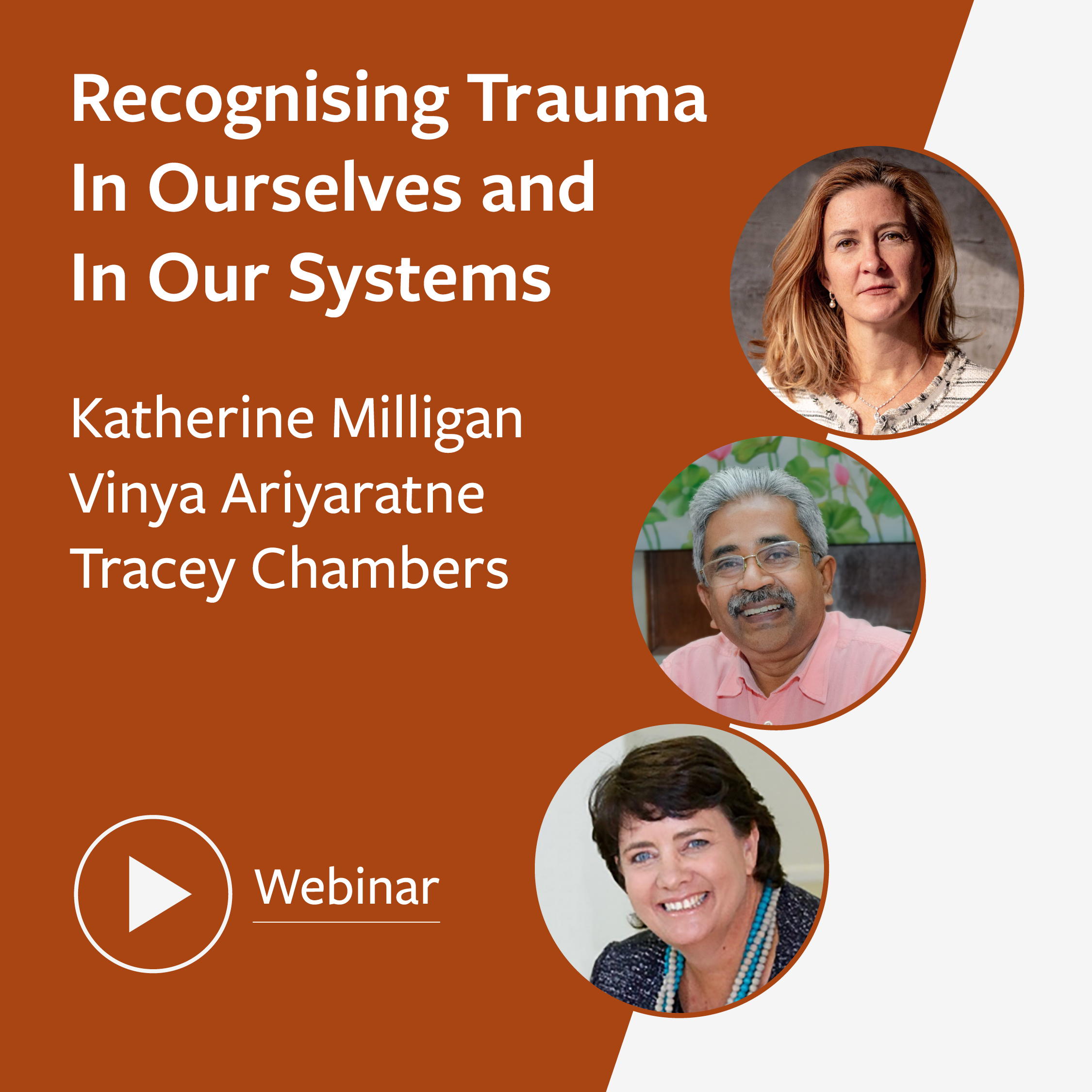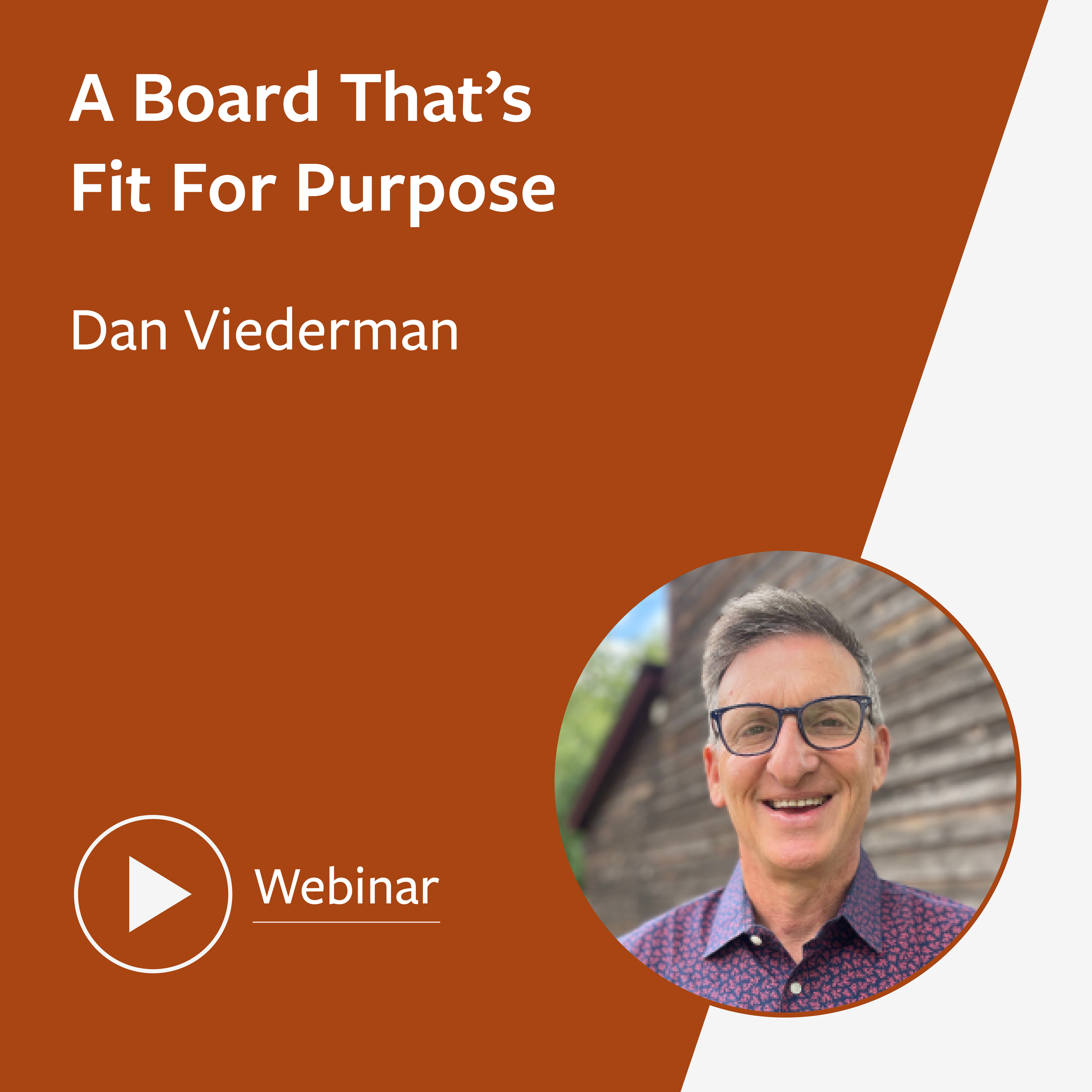
Archive
DY Suharya describes her powerful founder journey, how her organisation works with the government in Indonesia and practical insights into her succession plan.
Mark Cheng tables some ideas on how we can change the culture within the social sector - to address the unhealthy martyr complex, the lack of financial recognition for founders and how we can support social entrepreneurs to prepare for their eldership.
Facing bankruptcy or similar is a scary prospect but Attila von Unruh and Tracey Chambers provide important practical advice about what to do in preparation, and even when the crisis is imminent. This article explores some of the insights they shared.
Gary Cohen and Neelam Chhiber discuss this important question. Just some of the points covered - how social entrepreneurs come to be labelled as 'heroes'; how this affects their wellbeing; that it’s organisations, networks and movements (not lone 'heroes') that create systems change and the importance of recognising and empowering others.
As a social entrepreneur, how often do you think about money? Not funding for your organisation, but instead the impact of money on you as an individual. Mark Cheng explains that economics of personal care for a social entrepreneur can be just as important as the economics surrounding your organisation.
Monica Culen provides insights into her detailed approach to succession. Collince Dundo tells us why he believes transition and succession planning is a critical component of the sustainable impact of his young, vibrant organisation.
This article explores the insights Gary Cohen and Neelam Chhiber shared on the pressing issue of hero culture in the social impact sector.
Rebecca Eastmond, who has experience as a a founder, a funder and a board member, provides valuable advice on how and when to talk to a funder about succession, she gives examples of how it can be done well and examples of what to avoid and she answers questions from the audience.
Dr. François Bonnici, Adriana Craciun, and Tim Hanstad exploring the personal impacts of succession and reframing the narrative from the ‘end of the road’ to a collective journey supported by practical and emotional guidance.
DY Suharya describes her powerful founder journey, how her organisation works with the government in Indonesia and practical insights into her succession plan.
Dr. Susanna Kislenko (Director, The Founder Leadership Research Lab at the University of Oxford and Adjunct Research Professor at Carleton University) shares her groundbreaking research on Founder’s Syndrome.
The prospect of stepping back can be daunting. However, as demonstrated by the experiences of Neelam Chhiber and Jacob Mathew, succession is not just a necessary process but also an opportunity for personal growth and organisational renewal. This article explores their conversation on this crucial topic.
When we think about diversity, the conversation typically revolves around race, gender, and sometimes socio-economic background. However, there's an often-overlooked dimension of diversity— age and experience. This article discusses eldership as a crucial aspect of diversity, exploring the challenges and opportunities associated with ageing and the value of intergenerational collaboration. It's time to reevaluate how we view eldership. This article is based on a conversation between the Elders Council for Social Entrepreneurs and Kathryn Hall-Trujillo and Hae-Young Lee.
A rarely discussed topic in the social innovation sector, Rebecca Eastmond gives her insights on how to fund the succession challenge.
Cynthia Rayner and Mel Young discuss storytelling and its power to change perceptions, culture and systems. They use ‘The Beautiful Game’, a Netflix film inspired by the Homeless World Cup, as a case study.
Learning from Molly Melching and her successor, Elena Bonometti, we explore the experiences of the person leaving and the person taking over, giving you a double-sided perspective on transitions.
Succession planning is essential for ensuring the sustainability of organisations, particularly those in the social entrepreneurial sector. In this article we explore the experiences and insights shared by Monica Culen and Collince Dundo on navigating the complex process of leadership transitions.
An article exploring the valuable insights Dan Viederman shared on working with a board of trustees. Dan is as an award-winning social entrepreneur with extensive experience on both non-profit and for-profit boards.
Tracey Chambers and Attila von Unruh guide us through practical advice on how to build organisational resilience in case of financial crisis as well as stories of hope in this engaging webinar.
Rebecca Eastmond provides advice on talking to a funder about succession, giving examples of what to do and what to avoid.
Katherine Milligan, Dr. Vinya Ariyaratne and Tracey Chambers discuss what it means to bring a trauma-informed lens to our work as social entrepreneurs.
Neelam Chhiber and Jacob Mathew discuss their succession journeys as individuals and as a couple, providing valuable practical insights.
Webinar: We hear insights from Dan Viederman, an award-winning social entrepreneur, who shares his experiences of the succession process and his learnings from being on boards across the non-profit and commercial sectors.
Explore

